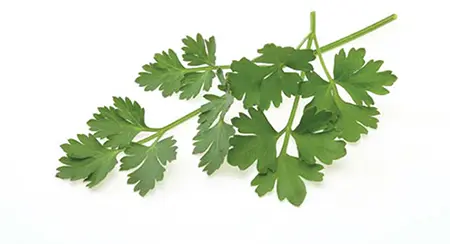
Exploring the Origins
Parsley, scientifically known as Petroselinum crispum, is a Eurasian herb celebrated for its edible leaves. Available in varieties like flat-leaf and curly-leaf, parsley is a staple in kitchens worldwide. Its roots and leaves are also recognized for their medicinal properties. The name ‘parsley’ derives from Greek, symbolizing its connection to rock and celery.
Historical Significance and Lore
Ancient Greeks linked parsley with death, incorporating it in funeral rites. Myths about parsley’s germination involving the devil highlight its enigmatic nature. Superstitions around transplanting parsley are still prevalent, viewed by some as a harbinger of misfortune.
Healing and Nutritional Benefits
Parsley is a powerhouse of nutrients, including vitamins C, A, B, iron, and calcium. It aids digestion, boosts cardiovascular health, and is used in various remedies:
- Compresses with parsley tea alleviate swelling and puffiness.
- Parsley poultices soothe insect bites.
- Its essential oil, with antibacterial and antifungal properties, treats skin conditions.
- Parsley root benefits urinary and kidney health.
- Chewing parsley freshens breath and cleans teeth.
Note: Pregnant women should moderate parsley consumption due to its menstrual induction properties.
Magical Uses
In magical practices, parsley is used to:
- Enhance strength and vitality, particularly after illness or surgery.
- Serve in purification baths for cleansing.
- Protect food from contamination.
- Act as incense in rituals for the deceased.
- Enhance fertility and honor mother goddesses.
Personal and Spiritual Enrichment
Parsley uplifts the spirit, aiding in overcoming stagnation. It invokes love and passion, adding excitement to relationships. This versatile herb is not just a culinary delight but a tool for personal growth and rejuvenation.
